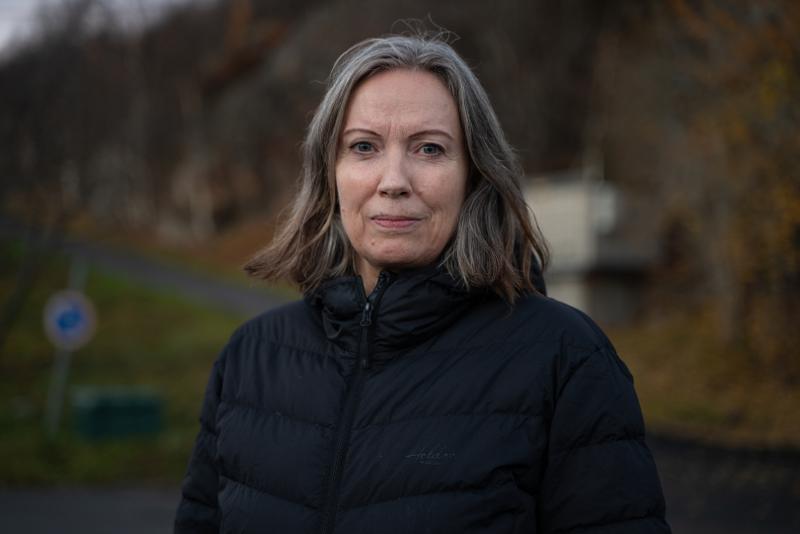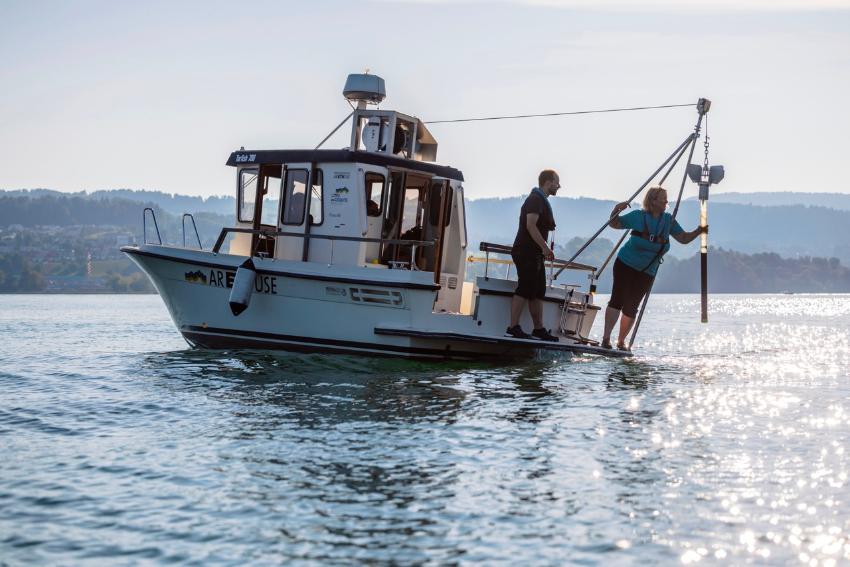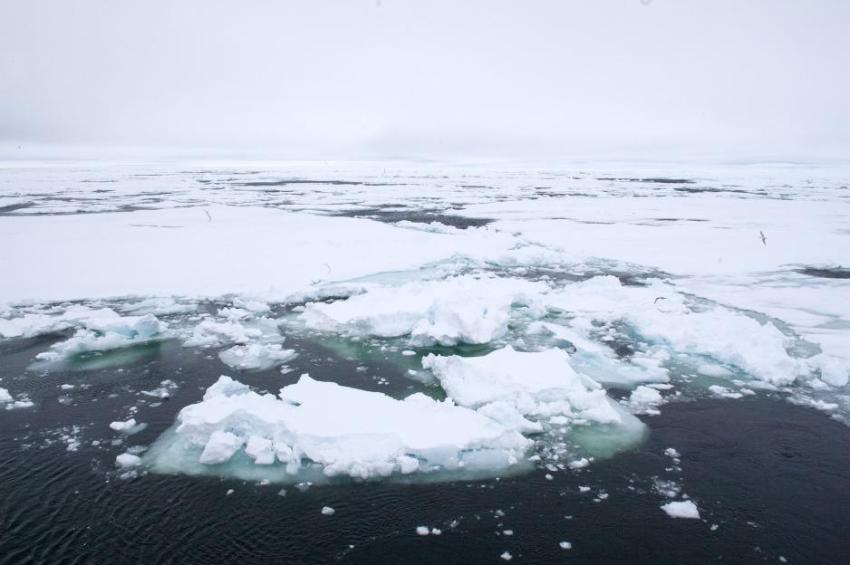“Russian authorities are exploiting our shared war history and sympathy”
“They are exploiting World War II memorials in Norway and are using them in their narrative of victory and propaganda”, says historian Marianne Neerland Soleim.

On the 25th of October, it was 80 years since Soviet forces moved in and liberated Sør-Varanger from German occupation.
"Today, Russian authorities are using World War II memorials in Norway in a rather cynical manner," says Marianne Neerland Soleim, a professor of history at UiT The Arctic University of Norway.
She researches Russian memory politics, which involves how memories and historical events are handled and interpreted, often in a political way.
In recent years, the number of Russian commemorative events on Norwegian soil has intensified.
"This is a challenging topic, especially in Eastern Finnmark, where Russians and Norwegians have lived closely together for a long time. However, we must be aware of how the memorials are used. Norway lacks guidelines for how to address Russian memorial political pressure," the historian states.

Separate commemorations on Liberation Day
Norwegian authorities marked Liberation Day with a wreath-laying ceremony at the Liberation Monument in Kirkenes. Russian authorities held their own ceremony at the monument two hours later.
In previous years, Norway and the Soviet Union – later Russia – had joint commemorations of the day with representatives from both countries' governments.
Since Russia's full-scale invasion of Ukraine, Norway no longer wishes to hold commemorations with Russian authorities.
A victory narrative that obscures others' efforts
"In their memorial speeches, Russian authorities link the war narrative to victory," explains Soleim. They downplay other parts of the history.
For example, they seldom mention the many Soviet prisoners of war who lost their lives in Norway. They also downplay other stories, such as Norwegian partisans who were held in Soviet captivity after the war, or the efforts of other Allied countries during the war years.
"Russia's narrative focuses on the Soviet soldiers who fell in battle – it's a glorious victory story. This is what is useful for them in today's context," says Soleim.
In comparison, a total of 13,700 Soviet prisoners of war died in Norway during the war, while about 600 Soviet soldiers fell in battle on Norwegian soil.
Prisoners of war are more related to defeat, not heroism. Stalin also regarded the prisoners as traitors, and after the war, Soviet authorities were primarily concerned with repatriating fallen soldiers, not prisoners of war, Neerland Soleim explains.
Increasing number of memorial events in recent years
Since 2014, Russian authorities have held an increasing number of memorial events at war monuments in Norway. Since 2020, the activity has increased further, and following the full-scale invasion of Ukraine in February 2022, it has intensified, according to Neerland Soleim.
They have also expanded the activity to other locations beyond Eastern Finnmark.
Russian authorities have been conducting war memorial events throughout the country.
"In this way, Russian authorities are expanding their narrative to almost claim that they liberated the whole of Northern Norway or Norway from the Nazis, while the Soviet army actually only liberated Sør-Varanger in Eastern Finnmark," says the history professor.
The content of the speeches from the memorial events in Norway is shared on Russian media channels and social media and is actively used in the country's propaganda to reinforce the victory narrative associated with the Soviet Union's victory over Nazi Germany.

History seminar in Kirkenes on Liberation Day
Neerland Soleim delivered a lecture at the history seminar Free Finnmark in Kirkenes on Friday.
The history seminar focused on World War II and the liberation of Eastern Finnmark, but also on Russian memory politics – and was UiT's contribution to the commemoration of the liberation anniversary.
-
Fiskeri- og havbruksvitenskap - bachelor
Varighet: 3 År -
Fiskeri- og havbruksvitenskap - master
Varighet: 2 År -
Master of Philosophy in Visual and Multimodal Anthropology
Varighet: 2 År -
Sosialantropologi - master
Varighet: 2 År -
Arkeologi - master
Varighet: 2 År -
Peace and Conflict Transformation - master
Varighet: 2 År -
Indigenous Studies - master
Varighet: 2 År -
Human Rights Policy and Practice - master
Varighet: 2 År -
Technology and Safety in the High North - master
Varighet: 2 År -
Sosiologi - master
Varighet: 2 År -
Strategisk ledelse og økonomi - erfaringsbasert master
Varighet: 5 Semestre -
Samfunnsplanlegging og kulturforståelse - bachelor
Varighet: 3 År -
Sosiologi - bachelor
Varighet: 3 År -
Arkeologi - bachelor
Varighet: 3 År -
Spansk - årsstudium
Varighet: 1 År -
Statsvitenskap - bachelor
Varighet: 3 År -
Pedagogikk - master
Varighet: 2 År -
Likestilling og kjønn - årsstudium
Varighet: 1 År -
Samfunnsplanlegging og kulturforståelse - master
Varighet: 2 År -
Økonomi og administrasjon - bachelor
Varighet: 3 År -
Samfunnssikkerhet og miljø - bachelor
Varighet: 3 År -
Økonomi og administrasjon, siviløkonom - master
Varighet: 2 År -
Ledelse, innovasjon og marked - bachelor
Varighet: 3 År -
Ergoterapi - bachelor
Varighet: 3 År -
Grunnskolelærerutdanning for 1.-7. trinn - master
Varighet: 5 År -
Grunnskolelærerutdanning for 5.-10. trinn - master
Varighet: 5 År -
Samfunnssikkerhet - master
Varighet: 2 År -
Kunst - bachelor
Varighet: 3 År -
Kunsthistorie - master
Varighet: 2 År -
Musikkutøving - bachelor
Varighet: 4 År -
Religionsvitenskap - årsstudium
Varighet: 1 År -
Russisk - årsstudium
Varighet: 1 År -
Samfunnsøkonomi med datavitenskap - bachelor
Varighet: 3 År -
Sosialantropologi - bachelor
Varighet: 3 År -
Organisasjonsdesign og ledelse - master
Varighet: 2 År -
Statsvitenskap - master
Varighet: 2 År -
Historie - master
Varighet: 2 År -
Kunsthistorie - bachelor
Varighet: 3 År -
Tysk - årsstudium
Varighet: 1 År -
Russlandsstudier - master
Varighet: 2 År -
Filosofi - bachelor
Varighet: 3 År -
Kvensk - årsstudium
Varighet: 1 År -
Barnehagelærer - bachelor
Varighet: 3 År -
Forfatterstudium 2 - årsstudium
Varighet: 1 År -
Sosialt arbeid - bachelor
Varighet: 3 År -
Bedriftsøkonomi - årsstudium (nettbasert)
Varighet: 1 År -
Ledelse - årsstudium (nettbasert)
Varighet: 1 År -
Sosialt arbeid - master
Varighet: 2 År -
Ledelse, innovasjon og marked - master
Varighet: 2 År -
Governance and Entrepreneurship in Northern and Indigenous Areas - master
Varighet: 4 År



